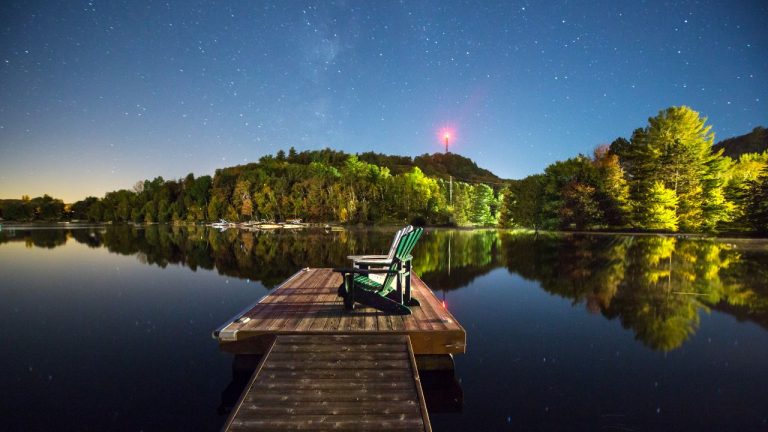Buying a cottage is an exciting and rewarding adventure, offering a peaceful retreat from everyday life. However, it’s also a significant financial decision that requires careful consideration. If you’re thinking about when the right time is to invest in a cottage, several key factors come into play. Your financial situation, market conditions, and future plans are all important in making this decision. Here’s a practical guide to help you determine if you’re ready to enter the world of cottage ownership.
Evaluating Your Financial Stability
Assessing Your Job Stability
The foundation of any large purchase, genuine estate, is having a stable source of income. Before you consider buying a cottage, evaluate your job security. Ask yourself the following questions:
-
How secure is my current employment?
-
Is my income steady and reliable?
-
Are there any potential changes in my job situation shortly?
A stable job means you can confidently take on a mortgage, knowing you’ll have the means to make regular payments. This assurance is necessary for the financial strain of a mortgage to outweigh the joy of owning a cottage.
Determining Affordability
Understanding what you can afford is crucial. Start by analyzing your current financial situation, including your income, debts, and spending habits. Here are steps to help you figure out affordability:
-
Consult a Lender: A trusted lender can provide insights into the pre-approval process and help you understand how much you can borrow.
-
Consider Mortgage Rates: Today’s mortgage rates can significantly impact your monthly payments. Your lender can provide current rates and explain how they affect your loan.
-
Estimate Monthly Payments: Use online mortgage calculators or your lender’s guidance to estimate monthly payments.
-
Budget for Additional Costs: Don’t forget to factor in closing costs, property taxes, insurance, and maintenance expenses.
Considering Your Long-Term Plans
Longevity of Your Stay
Real estate transactions involve several upfront costs, such as down payments, closing, and moving expenses. These costs are typically recouped over time as you build equity in your property. Therefore, it’s essential to consider how long you plan to keep the cottage:
-
Short-Term vs. Long-Term Stay: If you plan to keep the cottage for many years, you’re more likely to recover your initial investment and potentially profit when you sell.
-
Future Plans: Consider whether you have any upcoming life changes, such as a job transfer, retirement, or family obligations, that might necessitate moving.
Building Your Support Network
Assembling a Team of Professionals
Navigating the real estate market, especially for first-time buyers, can be daunting. Having a team of seasoned professionals can significantly ease the process and make it more manageable:
-
Real Estate Agent: A local agent with expertise in the area you’re looking to buy can provide invaluable insights and help you find the right property.
-
Lender: A reliable lender can guide you through financing and ensure you get the best mortgage terms.
-
Legal Advisor: Consult a real estate lawyer to review contracts and protect your interests.
Additional Considerations
Lifestyle and Personal Preferences
Beyond financial and logistical factors, think about your lifestyle and what you want out of your cottage experience:
-
Location: Do you prefer a secluded retreat or a cottage close to amenities and social activities?
-
Activities: What recreational activities are essential to you? Whether boating, fishing, hiking or relaxing, ensure the cottage location supports your interests.
-
Accessibility: Consider how often you plan to visit and how easy it is to get to the cottage. Long commutes might reduce the frequency of your visits.
Seasonal Use and Maintenance
Cottages often require seasonal maintenance, mainly if they are located in areas with harsh weather conditions. Think about:
-
Winterization: If you plan to use the cottage year-round, ensure it’s equipped for winter use.
-
Upkeep: Regular maintenance, such as roof repairs, plumbing checks, and lawn care, is essential. Decide if you’ll handle these tasks yourself or hire professionals.
Conclusion
Purchasing your dream cottage is a significant decision that involves more than just market conditions. It requires thoroughly evaluating your financial stability, long-term plans, and personal preferences. By addressing these critical questions and assembling a team of professionals like us, you can decide whether to buy a cottage.
How do you navigate the complexities of the cottage market? Do you need personalized advice to ensure you’re making the right choice? Connecting with a local real estate professional like us can provide tailored guidance based on your unique situation, and you’ll be well on your way to finding the perfect retreat that meets your needs and aligns with your dreams.
Buying a cottage should enhance your life, providing a sanctuary to create cherished memories. What kind of retreat are you dreaming of? How do you envision your perfect escape? Let us know in the comments below.

